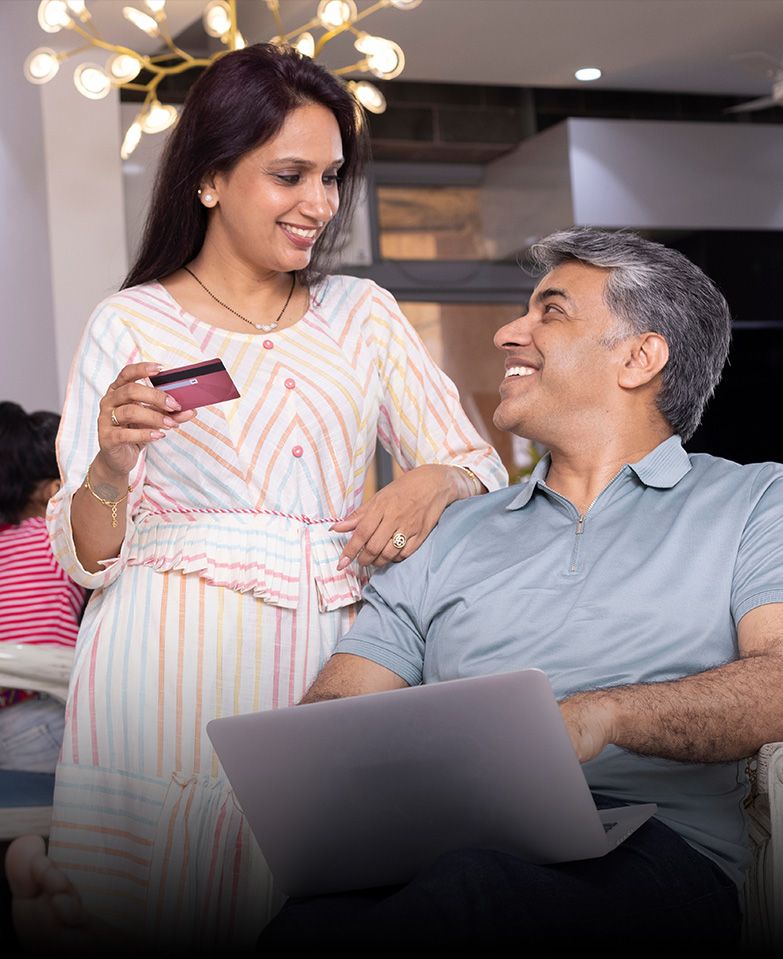
How to Pay Credit Card Bills Through Cheque?
When you are a credit card user, paying your bills on time is helpful to avoid additional interest rates. It may also lead to a fall in your credit score, which can negatively impact your credit health when securing loans and new credit cards.
Now, your credit card bills can be paid in many ways, including credit card payment by cheque. Yes, you got that right. You can also pay your bills using cheques, but how can we do it? Read this blog to learn how to pay your credit card bills using a cheque.
What is Meant by Paying Bills using a Cheque?
To make a credit card payment via cheque, you need a bank's chequebook. Next, write a cheque favouring the credit card and submit it to the bank. Once the bank receives your cheque, it will automatically pay your bill. It is very easy and hassle-free to pay your bills on time and avoid any penalties and additional charges from the credit card issuing bank.
Benefits of Using a cCheque to Pay Credit Card Bills
Here are the key benefits of using a cheque to pay your credit card bills:
- 100% secure payments: Using a cheque to pay your credit card bill offers security by avoiding online transactions and reducing the risk of fraud or unauthorised access to your account information.
- Proof of payment: A cheque provides a physical payment record, proving you made the payment on time. This can be valuable in case of disputes or discrepancies.
- Easy budget management: Writing a cheque allows you to control and manage your spending more effectively by ensuring you only spend what you have in your account.
- Avoiding online fees: Paying by cheque helps you avoid any additional fees associated with online payment methods, saving you money in the long run.
- Convenience: For some, writing a cheque may be more convenient and familiar than navigating online banking platforms, providing a straightforward way to settle your credit card bill.
- Reliability for large payments: Cheques offer reliability and ease for large credit card payments compared to other methods like NEFT, RTGS, and IMPS, which may have caps on maximum limits. This ensures hassle-free transactions, especially when settling substantial credit card bills.
- Post dated payments: By depositing a post-dated cheque, you can plan your credit card bill payments for future periods. This allows for better financial planning and management, ensuring timely payments without the need for immediate funds availability.
How to Pay Credit Card Bills using a Cheque?
Here’s how you can pay your credit card bill using a bank cheque:
- Head to your nearest bank branch to make a credit card bill payment.
- Approach the bank officials and request a cheque deposit slip for your transaction
- Complete the deposit slip by providing essential details:
- Your credit card's 16-digit number.
- Your name as it appears on the credit card.
- Details of the cheque, including the bank's name, cheque number, and the amount.
- Your contact number is for reference.
- 4. Attach the deposit slip securely to your cheque.
- Deposit your cheque through the designated cheque payment machine at the bank branch.
- You can also drop your cheque and the attached deposit slip into the bank's drop box located at the branch or an ATM.
How does a Credit Card EMI Calculator Help?
Using a credit card EMI calculator can be very helpful and a reliable source of tools offered by Kotak811. This tool helps estimate the monthly instalment amount for repaying your credit card dues in EMIs.
You simply input the total outstanding amount on your card, the interest rate your bank charges, and the desired repayment tenure. The calculator then computes the monthly EMI amount you need to pay. This tool gives you a clear picture of how much you'll need to budget each month, making it easier to manage your credit card debt and plan your finances effectively.
Conclusion
If you are an 811 credit card user, paying your credit card bills on time is very helpful. You can easily pay your credit card bills using a cheque without much hassle. As mentioned above, it is a streamlined process with a number of benefits. While online payment methods have perks, a cheque can help pay bills while maintaining tangible proof of payment.
FAQs
1. Where can I obtain a cheque deposit slip to pay my Kotak811 Credit Card bill?
You can request a cheque deposit slip from any Kotak branch or through the bank's online banking portal.
2. What information is required on the Kotak811 Credit Card bill payment cheque deposit slip?
The necessary details include your credit card number, your name as registered with the bank, the cheque amount, the cheque number, and your contact number.
3. Can I deposit my cheque payment for Kotak811 Credit Card at any Kotak ATM?
We provide the facility to deposit cheques through selected Kotak ATMs only. Always check the ATM facility before starting the process.
4. Are there any charges for paying with a cheque?
No, we don’t levy any charges when you make payments using a cheque.
Popular Searches on Kotak811
Kotak 811 | 811 Super Account | Super Savings Account Fees And Charges | Best Zero Balance Account Opening Online | Super.money Credit Card | Best Credit Card for Online Shopping In India | FD Credit Card | Visa Debit Card | Apply for Image Debit Card | Metal Debit Card | ActivMoney Savings Account | Open Savings Account Online | Savings Account Fees and Charges | Check Your CIBIL Score | Reactivate Dormant Account Online | Digital Savings Account | Apply for Personal Loan Online | Personal Loan for Education | Personal Loan For Marriage | Personal Loan For Medical Emergency | Personal Loan For Travel | Unsecured Personal Loans | Complete Guide on Fixed Deposit (FD) | Unfreeze Your Bank Account | How To Find Your Bank Account Number | How To Unfreeze Frozen Bank Account | How To Reactivate An Inactive Or Dormant Savings Account | What Is A Passbook | Zero Balance Current Account Opening Online | Zero Balance Current Account Fees & Charges | How To Get Airport Lounge Access On Debit Card | 811 Mobile Banking App
This Article is for information purposes only. The views expressed in this Article do not necessarily constitute the views of Kotak Mahindra Bank Ltd. (“Bank”) or its employees. Bank makes no warranty of any kind with respect to the completeness or accuracy of the material and articles contained in this Newsletter. The information contained in this Article is sourced from empanelled external experts for the benefit of the customers and it does not constitute legal advice from Kotak. Kotak, its directors, employees, and contributors shall not be responsible or liable for any damage or loss resulting from or arising due to reliance on or use of any information contained herein.
Share




